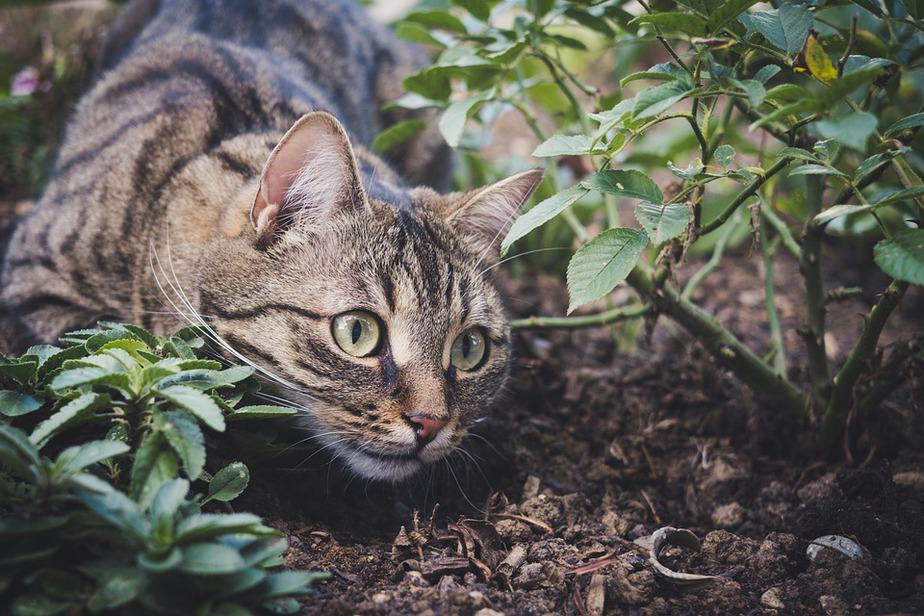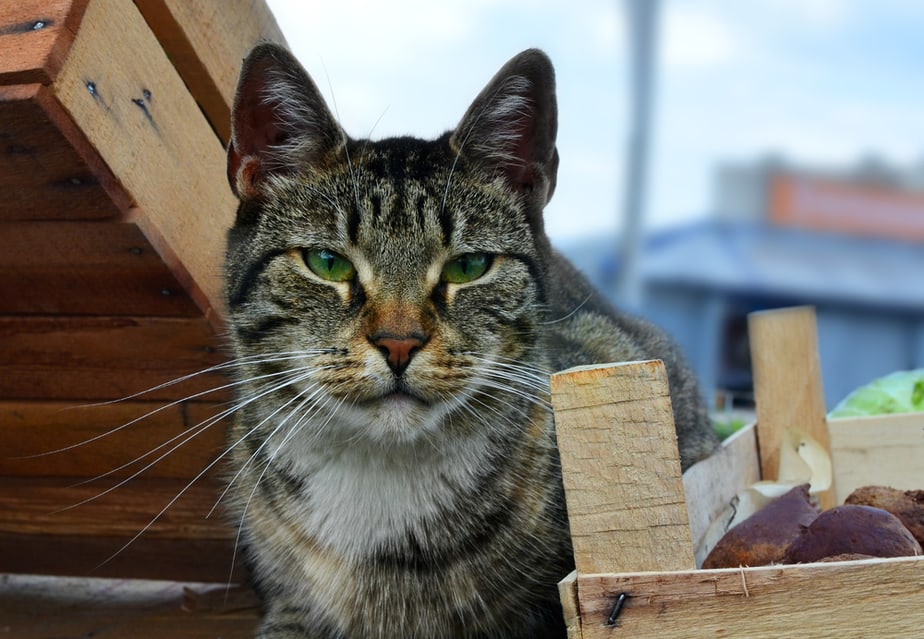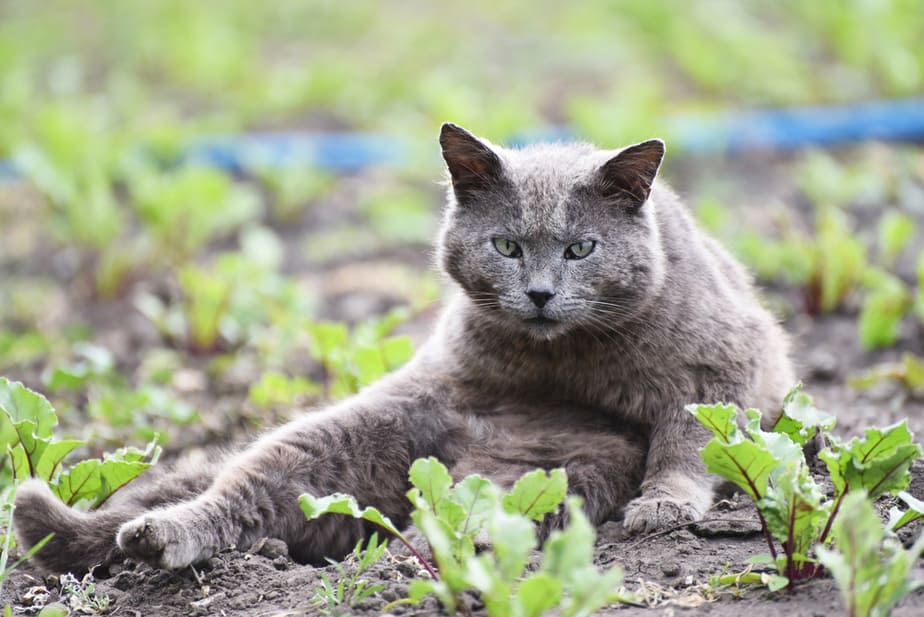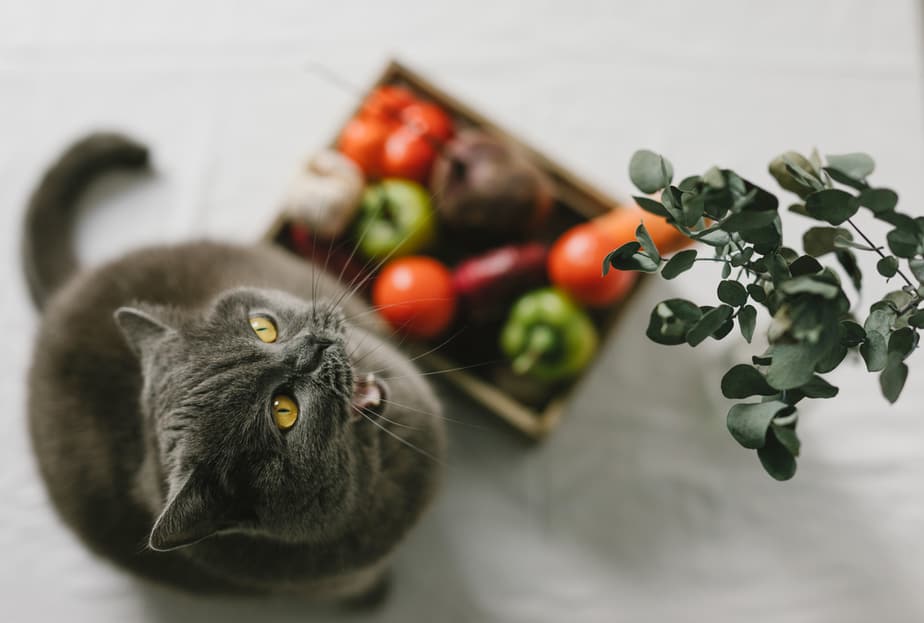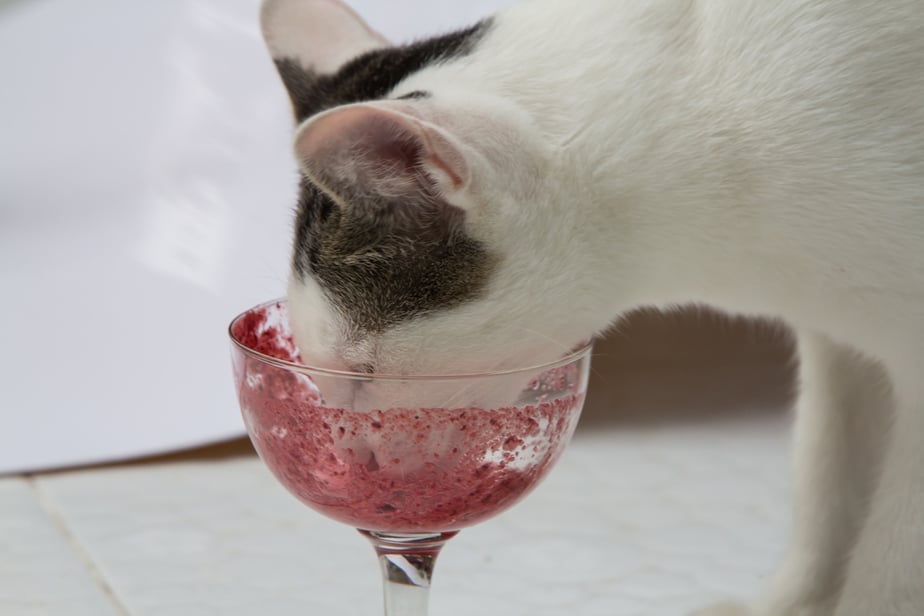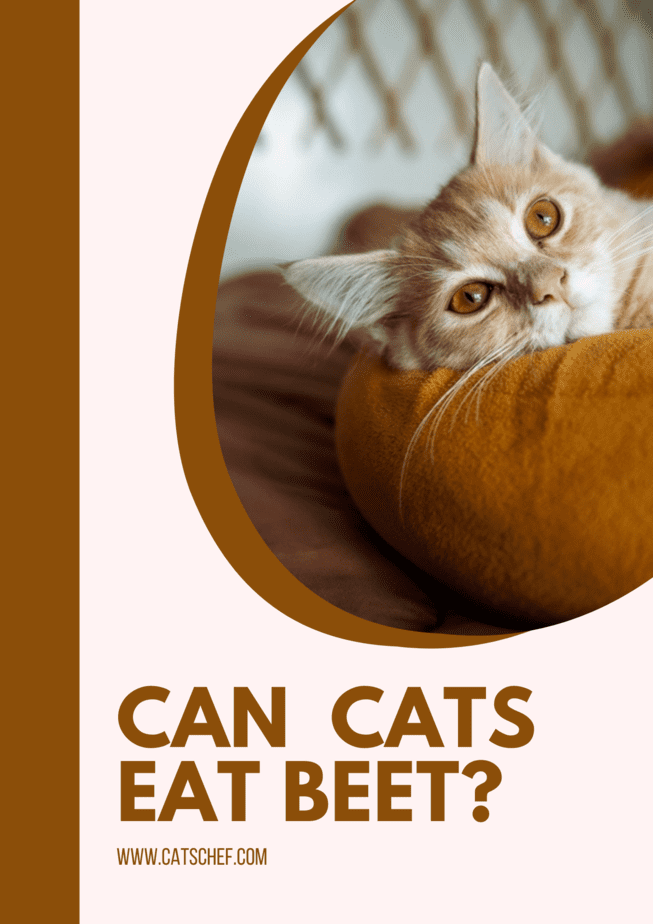📖 Table of Content:
If you’re looking for new, healthy foods for your cat, some vegetables may be a good option. Despite being carnivores, cats can benefit from a veggie snack now and then. We know beets are good for us, but can cats eat beet?
Certain vegetables are beneficial to your pet’s health, while others may be harmful. As a cat owner, you want to provide your furry feline with the best possible care. This entails incorporating nutritious meals into a well-balanced diet.
Unlike their wild cousins, our lap monsters are a bit clumsy when it comes to obtaining the necessary nutrients. You must first comprehend feline physiology in order to enrich your cat’s nutrition and improve her general quality of life.
Can cats eat beet safely?
To cut the long story short, yes, cats can eat beet. They’re safe for consumption as long as it’s moderated and not a regular thing.
If your pet gets a hold of this tasty root, don’t be concerned. It can be frustrating to have a curious cat and a gorgeous garden. At the very least, you won’t have to worry when your beet is dug up. Beetroot, like radishes, isn’t toxic to cats, which is a relief to their owners.
Is beet healthy for cats?
It’s safe to say that beet offers a range of nutrients beneficial to your feline. It contains a certain amount of protein and is low in fat and calories.
Felines require a daily intake of protein and must consume it on a regular basis. It benefits carnivores in a multitude of ways, including increasing immunity and maintaining a healthy neural system.
The most vital ingredient in your cat’s overall health and well-being is protein. If your cat doesn’t get enough protein, she will lose muscle mass and become weak. Because she’s a carnivore, she’s built to digest animal-derived proteins better than those found in plants.
1. Packed with health supplements
Folate, vitamin C, manganese, magnesium, phosphorus, iron, and zinc are also found in beetroot. Folate, riboflavin, and niacin are all abundant in these roots. They also contain some elements like potassium and calcium.
Furthermore, because beets are high in fiber, eating them be beneficial to your cat’s health. Dietary fiber aids digestion. It helps prevent constipation and regulates food in your cat’s digestive tract. Fiber is good for overall digestive health and lowers the risk of a variety of chronic diseases.
2. Beetroot lowers blood pressure
We need to mention the important antioxidants found in beetroots. They help to protect cells from oxidative damage. This root includes cancer-fighting antioxidants, lowers blood pressure, and improves the ability of body cells to absorb oxygen.
In cats all over the world, high blood pressure is a major risk factor for heart disease and stroke. Increasing potassium intake while decreasing salt intake looks to be a good way to control high blood pressure.
Potassium lowers blood pressure in two ways: it relaxes blood vessel walls and excretes excess salt through urine. Potassium is abundant in this superfood, with a half-cup serving providing 6% of your cat’s daily requirement.
It’s an electrolyte that is necessary for muscle and nerve function. A low potassium level in the blood is referred to as hypokalemia. Mild to moderate hypokalemia is rather common in sick cats, but it rarely causes significant clinical symptoms.
Severe hypokalemia, on the other hand, can cause serious and sometimes fatal clinical signs. The most common symptom of severe hypokalemia is generalized muscle weakness.
3. Low in fat
Beet also protects and strengthens your cat’s cardiovascular system and immunological systems. A veggie salad with some beet and Brussel sprouts could be a great snack for your furry companion.
Beets have high water content and are low in fat and calories. This makes them a good snack since they keep your pet satiated without causing her to gain weight.
They are also high in nitrates, which can assist to decrease blood pressure. Heart disease and stroke may be minimized as a result of this. Besides, nitrates may improve cognitive performance by increasing blood flow to the brain.
Can cats eat beet regularly?
Beet contamination is uncommon, and cats may not be harmed in the same way or to the same extent as humans. However, there’s always a risk and the fear of introducing new foods into your cat’s diet.
If you do decide to feed your cat beets, be aware of any symptoms she may exhibit as a result of eating contaminated vegetables. Make sure to contact your vet if you notice any of the signs of food contamination, such as vomiting, diarrhea, dehydration, and fever.
This root veg won’t kill your cat, but she could have trouble digesting plant-based foods. In felines, constipation, diarrhea, and even vomiting are all signs of poor digestion. If your pet is unable to digest food, she won’t be able to acquire the nutrients she needs.
Cats can eat beet because it isn’t harmful to them, but they can’t digest it correctly. Food that hasn’t been digested might lead to digestive problems as well as nutrient loss.
Lack of nutrition
Because cats are obligate carnivores, they must get the majority of their energy and nutrients from meat. While some vegetables can be good for cats in some situations, they should be kept to a minimum in their diet.
Some vegetables, such as asparagus, are more difficult for cats to digest. So, while these may be a healthy choice for you, they may not be the best for your kitto.
Cat food, whether kibble or wet food, provides the majority of your cat’s vegetable and fruit needs. Just be aware that certain companies may include too many vegetable, fruit, and grain ingredients in some of their products due to the lack of rigorous rules and controls in the pet food industry.
Can cats eat cooked beet?
Some vegetables shouldn’t be consumed raw and the same applies to beetroot. If you decide to feed your pet some beet, make sure it’s properly cooked. High temperatures will kill off any possible germs or bacteria.
That way, food contamination is less likely to happen. However, make sure you leave out any additional spices, seasonings, or sauces. These are known to upset your feline’s stomach and cause mild to severe side effects.
Besides, raw vegetables are hard to chew and digest which could lead to choking and obstruction. Felines have a harder time breaking down plant matter, so why make their lives even harder?
The texture of raw beet isn’t really enticing to cats either, so if you’re just introducing this food to your pet, it’s best if you cook it. You could make a tiny salad with some chicken and other vegetables for her. However, don’t rely on veggies as they can’t meet her dietary needs.
Can cats drink beetroot juice?
Beetroot juice, like all natural juices, is heavy in sugar. Carbohydrates are inedible to cats. They’re made from plants, and as we’ve established, cats and plants don’t get along very well. Cats are carnivores, which means they’re wired to consume meat.
While a few licks of beet juice won’t hurt, the nutrients in these fruits will likely not be properly digested. Carbohydrates aren’t important in a feline’s diet because her body can’t fully process them.
A high-carb diet invariably leads to weight gain. A chonky may be cute and all, but additional pounds are harmful to your pet’s health. We all love chubby fluffballs, but when your pet is in danger, it’s not that sweet anymore.
To sum up
To summarize, cats can eat beet, but only as an occasional treat. For carnivores like cats, beet doesn’t serve much in terms of nutritional benefit.
As a result, it’s preferable to stick to her main diet and gradually introduce veggies. If served appropriately, this root can provide your pet with a few health benefits.
It’s packed with vitamins, minerals, and fiber. All of these are essential for your feline’s wellness and can give her body that extra push. Beet is, however, deficient in protein, a crucial ingredient that cats require on a daily basis.
Before serving in a salad, make sure the beet is cooked – and plainly. Remember, less is more.
Beet juice is packed with natural sugars. Carbs aren’t necessary for a feline’s diet, which will eventually lead to weight gain. If your pet eats carbs on a frequent basis, this will lead to problems in the future.
As a result, it’s best to feed meat on a daily basis and veggies as a treat. To keep your furbaby safe and sound, make sure she has a nutritious and balanced diet.
